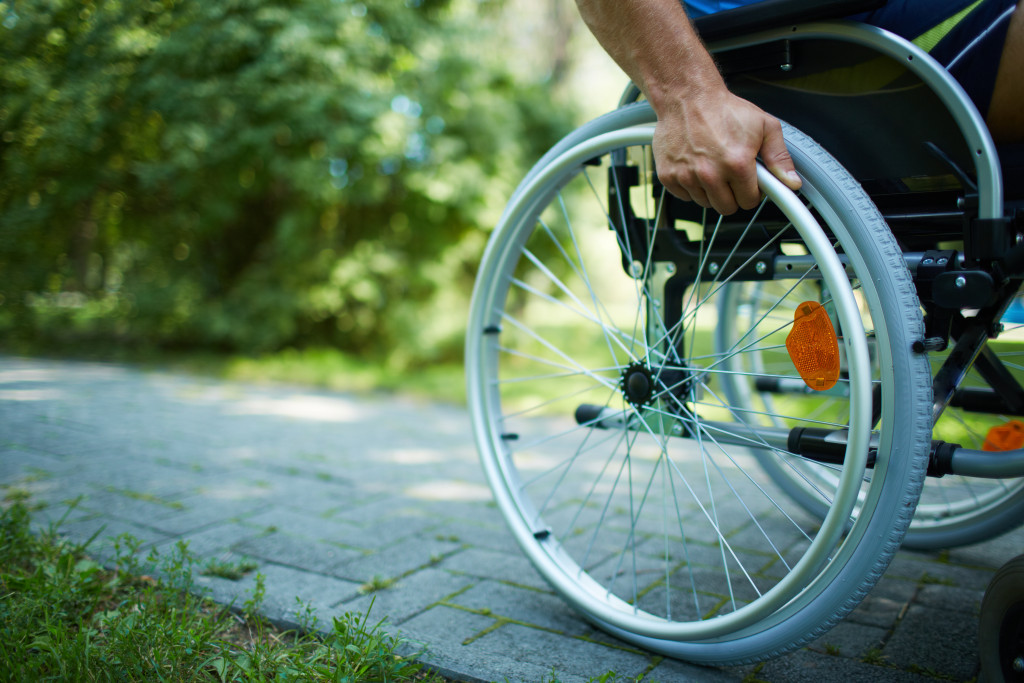Disclaimer: This website provides health information for educational purposes only and is not a substitute for professional medical advice, diagnosis, or treatment. Always seek the guidance of a qualified healthcare provider with any questions you may have.
- Creating an action plan to set goals and maintain wellness is essential for people with disabilities.
- Identifying nutritional and exercise strategies, such as eating a balanced diet with natural foods, can help you be healthy.
- Taking time for rest, including activities like getting creative, connecting with nature and having fun, and reading books.
- Connecting with a professional can provide invaluable assistance in navigating the complex system.
Living with a disability can be challenging and often make it difficult to stay healthy. Taking care of your body, mind, and overall well-being is essential, no matter your limitations. Here are five tips to help people with disabilities stay healthy despite physical or mental impairments.
1. Create an Action Plan to Set Goals and Maintain Wellness
The most important thing is to find activities you enjoy so that you can keep up with them over time. Depending on the types of disabilities you have, there may be limitations on the types of activities you can do, but there are still plenty of options. Consider joining a local disability sports team or finding a low-impact exercise program in your area. You could also look into wheelchair yoga classes or try water aerobics for a gentler exercise. Whatever activity you decide to do, make sure it’s something you enjoy so that you can stay motivated.
2. Identify Nutritional and Exercise Strategies
Eating healthy is vital to maintaining a healthy lifestyle, especially for people with disabilities. A balanced diet will help ensure your body has the energy and nutrients to function correctly. Start by providing well-balanced meals with plenty of fruits and vegetables, whole grains, and lean proteins. Focus on eating more natural foods that don’t contain added sugar or unhealthy fats. It may also be helpful to consult with a registered dietitian who can provide tailored advice based on your needs.
3. Take Time for Rest and Relaxation

Resting and relaxing is essential for maintaining good health, especially if you have a disability. It’s vital that you get an adequate amount of sleep each evening, with the recommended minimum being seven hours. Doing so will help ensure your body and mind are well-rested for the day ahead! If you’re having trouble sleeping, talk to your doctor about strategies to help improve your quality of sleep. Taking time to relax and unwind is also essential for your mental health.
Here are some relaxing things you can do during your relaxation time:
Get Creative
Creativity can be an excellent outlet for stress and anxiety. Try something enjoyable, such as painting, drawing, crafting, or playing an instrument. You can also try writing stories or creating projects like scrapbooks or videos. Take this time to express yourself in whatever way you feel best!
Connect With Nature
Being in nature can be incredibly calming and therapeutic. Walk around your neighborhood, go to the park, or even sit on your porch or balcony. Enjoy the fresh air, listen to the birds chirping, and take it all in!
Have Some Fun
It’s essential to take time for yourself and have some fun. Try activities like playing board games, or video games, watching a movie or TV show, or conversing with friends. Taking part in activities that bring you joy can help boost your mood!
Read A Book
Reading is an easy and enjoyable way to relax. Choose a book that interests you and get lost in the story. It can be a great source of comfort to escape reality for a little while! You could also try listening to an audiobook or podcast if reading isn’t an option.
4. Consider Social Security Benefits

If you or a loved one is living with a disability, you may be eligible for Social Security benefits. Utilizing a reliable Social Security disability lawyer can help you understand the complex system and determine if you are eligible for these benefits. They can also assist in filing applications and appeals if necessary. Additionally, they can provide guidance on how to maximize your benefits and understand the different options available.
5. Exploring Mental Health Options and Emotional Support
Social connection is essential to maintaining a healthy lifestyle, especially for those with disabilities. Connect with family and friends in person or remotely if necessary. Other helpful connections might include joining a disability-focused support group or participating in disability-related events. You could also try joining an online community of people with similar disabilities and interests to you, where you can share stories and advice.
In Closing
No matter what challenges you face with your disability, there are still many ways to stay healthy and lead an active lifestyle. You can continue enjoying a healthy life with the right approach and attitude. Don’t forget that while it may take more effort, having a disability doesn’t mean giving up.




